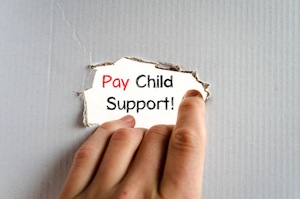Wheaton |
St. Charles |
Sycamore
 630-665-7300
630-665-7300
Recent Blog Posts
Keep These Things in Mind When Divorcing an Uncooperative or Hostile Spouse in Illinois
 While almost all divorces involve a good deal of conflict, some divorcing spouses are more hostile toward each other than others. If you are in the middle of a high-conflict divorce, or are considering divorcing a spouse who you predict will not be cooperative, you probably feel stressed and overwhelmed. Divorcing someone who is unwilling to work with you to solve problems and come to an agreement on divorce issues can be exhausting. However, there are a few things you can do to help the divorce process go as quickly and smoothly as possible.
While almost all divorces involve a good deal of conflict, some divorcing spouses are more hostile toward each other than others. If you are in the middle of a high-conflict divorce, or are considering divorcing a spouse who you predict will not be cooperative, you probably feel stressed and overwhelmed. Divorcing someone who is unwilling to work with you to solve problems and come to an agreement on divorce issues can be exhausting. However, there are a few things you can do to help the divorce process go as quickly and smoothly as possible.
Do Not Stoop to Their Level
High-conflict divorces can bring out the worst in people. It can make the person you used to love seem like a complete stranger who is intent on making your life miserable. It is very important for people in this situation to be careful not to overreact to their soon-to-be-ex spouse's antics. He or she may very well do things to try to hurt or embarrass you. For example, some angry spouses will write defaming remarks about the other on social media. As tempting as it is to write something insulting back or otherwise seek revenge, this will only escalate the situation and lead to more conflict. Although it can seem nearly impossible, being “the bigger person” during a high-conflict divorce is often the best way to avoid excessive drama and slowdowns.
Divorce Mediation in Illinois Can Help You Avoid Litigation
 When a married couple decides to end their marriage through divorce, there are many decisions which must be made. If the couple has children, schedules for child custody (technically called the allocation of parental responsibility) and visitation (parenting time) must be arranged. The couple will also need to decide how they will split their marital estate. Often, this involves deciding whether or not to sell the family home or assign it to one of the spouses. Couples must also decide how shared bank accounts, investments, vehicles, and valuables like jewelry or fine art should be divided.
When a married couple decides to end their marriage through divorce, there are many decisions which must be made. If the couple has children, schedules for child custody (technically called the allocation of parental responsibility) and visitation (parenting time) must be arranged. The couple will also need to decide how they will split their marital estate. Often, this involves deciding whether or not to sell the family home or assign it to one of the spouses. Couples must also decide how shared bank accounts, investments, vehicles, and valuables like jewelry or fine art should be divided.
Understandably, many divorcing couples struggle to communicate effectively about these issues. In these circumstances, divorce mediation can help facilitate communication between the spouses so they can arrive at an agreement.
Benefits of Mediation
Most divorcing couples wish to avoid courtroom litigation. Not only is litigation expensive and time-consuming but it can also be an intimidating environment and lead to escalated hostility between the spouses. Mediation allows couples to meet with a mediator and discuss their concerns about various issues related to the divorce. A mediator does not make decisions for the couple, but instead he or she encourages an open dialogue between the parties which allows them to make decisions for themselves.
I Was Fired for Making a Sexual Harassment Complaint, Now What?
 Across the country, men and women are saying “no more” to workplace sexual harassment. No one should be made to tolerate demeaning sexual remarks and behavior while they are at work. However, many people stay silent about sexual harassment because they are afraid reporting the sexual harassment will get them fired. Fortunately, there are laws in place which prohibit employers from firing an employee for making a sexual harassment complaint.
Across the country, men and women are saying “no more” to workplace sexual harassment. No one should be made to tolerate demeaning sexual remarks and behavior while they are at work. However, many people stay silent about sexual harassment because they are afraid reporting the sexual harassment will get them fired. Fortunately, there are laws in place which prohibit employers from firing an employee for making a sexual harassment complaint.
What Constitutes Sexual Harassment?
There are two types of sexual harassment recognized by the law: quid pro quo and hostile work environment harassment. Quid pro quo sexual harassment occurs when a superior attempts to trade sexual attention for workplace perks or continued employment. Hostile work environment harassment occurs when derogatory, discriminatory, or sexual comments and behavior interferes with an employee's ability to do his or her job.
Actor Nicolas Cage Files for Annulment Just Four Days After Wedding
 Las Vegas has become heavily associated with quick weddings and, sometimes, quick divorces. Las Vegas is not only the “city of lights” but also the marriage capital of the world. Clark County, Nevada, the county in which Las Vegas is located, issues over 100,000 marriage licenses each year. Of course, Las Vegas is also known for being a city full of alcohol and partying. Sometimes, the combination of inexpensive and quick marriage services plus the availability of alcohol results in some marriages spouses regret. In such a case, couples may be able to file for an annulment, which is technically called a Declaration of Invalidity of Marriage. An annulment differs significantly from divorce, and only certain married couples are eligible for an annulment in Illinois.
Las Vegas has become heavily associated with quick weddings and, sometimes, quick divorces. Las Vegas is not only the “city of lights” but also the marriage capital of the world. Clark County, Nevada, the county in which Las Vegas is located, issues over 100,000 marriage licenses each year. Of course, Las Vegas is also known for being a city full of alcohol and partying. Sometimes, the combination of inexpensive and quick marriage services plus the availability of alcohol results in some marriages spouses regret. In such a case, couples may be able to file for an annulment, which is technically called a Declaration of Invalidity of Marriage. An annulment differs significantly from divorce, and only certain married couples are eligible for an annulment in Illinois.
Cage Says He Was Too Intoxicated to Understand His Actions
Getting married is a huge decision which should not be taken lightly. When drugs or alcohol cloud the thinking of individuals getting married, it is possible for the marriage to be reversed. Academy Award-winning actor Nicolas Cage filed for annulment last week on the grounds that he was too drunk to understand his actions when he married his girlfriend. He also mentions that at the time of the marriage, he was unaware that his girlfriend was involved in another relationship.
How Can I Receive Child Support in Illinois If I Am Unmarried?
 There are two instances when child support is awarded to parents in Illinois: when parents get divorced or when unmarried parents have a child together. If you are an unmarried parent or soon will be, you may be wondering how you can receive support payments from your child's other parent. If the child's biological father has not been officially named the legal father of the child, you will have to establish parentage through the court before requesting child support.
There are two instances when child support is awarded to parents in Illinois: when parents get divorced or when unmarried parents have a child together. If you are an unmarried parent or soon will be, you may be wondering how you can receive support payments from your child's other parent. If the child's biological father has not been officially named the legal father of the child, you will have to establish parentage through the court before requesting child support.
How to Establish Paternity in Illinois
When a married couple has a baby, Illinois law assumes that the husband of the woman who gave birth to the child is the father. However, when an unmarried woman gives birth, there is no assumption of paternity. Parentage can be established through one of several ways. If neither party doubts the paternity of the child, the two parents can sign a Voluntary Acknowledgement of Paternity (VAP). This document allows the father to be named on the birth certificate but does not address issues of child support, parenting time, or allocation of parental responsibilities. Another method for establishing parentage is for either parent to file a Petition to Establish Parentage through the county court and participate in the subsequent proceedings. Lastly, parents may seek an Administrative Paternity Order to be established and entered by Healthcare and Family Services' Child Support Services.
When is Mediation Not a Good Idea for Divorcing Couples?
If you are considering ending your marriage, you probably have a myriad of questions. You may be unsure of what to expect during the divorce process or whether or not you will need to hire a lawyer. You may also wonder how cooperative or uncooperative your soon-to-be-ex-spouse will be during the divorce process. Unfortunately, you cannot control how accommodating your spouse will be during the divorce. Fortunately, you can control your own actions.
One of the best ways to help your divorce go as smoothly as possible is to educate yourself about your options moving forward. One option which is available to Illinois residents getting a divorce is mediation. Mediation can be a valuable tool for couples who wish to figure out divorce issues outside of litigation. However, mediation is not for everyone.
What Does Divorce Mediation Involve?
During divorce mediation, a divorcing couple meets with a specially-trained mediator who acts as a neutral third-party during discussions about divorce issues. A mediator does not make decisions for the couple but instead helps facilitate respectful, effective communication about these issues so that the couple can reach an agreement. A mediator can help couples decide how their property should be divided and make plans for child custody, child support, and spousal maintenance.
Second Parent Adoption Can Allow a Same-Sex Partner to Become a Child's Legal Parent
 Since the 2015 United States Supreme Court ruling in Obergefell v. Hodges, states can no longer legally ban gay couples from marrying. Since this landmark decision, same-sex couples across the country are marrying and beginning their lives as legal spouses. Many same-sex couples also wish to start a family of their own. Same-sex couples can sometimes face complicated legal obstacles when children are involved. Fortunately, there are several legal avenues that Illinois residents can use to obtain parental rights. One of these is second parent adoption, also called co-parent adoption. Second parent adoption can allow same-sex couples to legally adopt a child into their family.
Since the 2015 United States Supreme Court ruling in Obergefell v. Hodges, states can no longer legally ban gay couples from marrying. Since this landmark decision, same-sex couples across the country are marrying and beginning their lives as legal spouses. Many same-sex couples also wish to start a family of their own. Same-sex couples can sometimes face complicated legal obstacles when children are involved. Fortunately, there are several legal avenues that Illinois residents can use to obtain parental rights. One of these is second parent adoption, also called co-parent adoption. Second parent adoption can allow same-sex couples to legally adopt a child into their family.
Second Parent Adoption Differs from Other Types of Adoptions
When most people think of adoption, they imagine a situation in which a parent gives up his or her parental rights and another individual takes on those parental rights. In a same-sex situation, things are often much different. It is not uncommon, for example, for one of the partners to be the only legal parent that the child has. That parent may have adopted the child originally or had the child without another parent involved, such as through a sperm bank or surrogacy. Through a second-parent adoption, the parent's partner can become the child's other legal parent.
Proposed Law Would Require Sexual Harassment Training for Restaurants
 Sexual harassment continues to be on the forefront of American minds. While some progress has been made to address workplace sexual harassment, there are still many industries plagued by sexual harassment. Employees who work in restaurants, hotels, and bars often experience the humiliation that comes with being sexually harassed. Patrons of these establishments may make crude and inappropriate remarks to employees. Perhaps even worse, many employees in the hospitality sector must also put up with this behavior from co-workers or superiors. Because of this, Illinois has proposed a bill that requires mandatory sexual harassment training for restaurant employees. The bill, called the Restaurant Anti-Harassment Act, if passed, will require all Illinois restaurants to provide sexual harassment prevention training to employees.
Sexual harassment continues to be on the forefront of American minds. While some progress has been made to address workplace sexual harassment, there are still many industries plagued by sexual harassment. Employees who work in restaurants, hotels, and bars often experience the humiliation that comes with being sexually harassed. Patrons of these establishments may make crude and inappropriate remarks to employees. Perhaps even worse, many employees in the hospitality sector must also put up with this behavior from co-workers or superiors. Because of this, Illinois has proposed a bill that requires mandatory sexual harassment training for restaurant employees. The bill, called the Restaurant Anti-Harassment Act, if passed, will require all Illinois restaurants to provide sexual harassment prevention training to employees.
Requirements Under the Restaurant Anti-Harassment Act
Illinois is just one of many states which have proposed or enacted employee-protectionist legislation in recent years. In February of this year, Illinois Representative Ann M. Williams proposed the Restaurant Anti-Harassment Act in hopes that mandatory harassment prevention training could help mitigate the high incidence of sexual harassment in the restaurant industry. If passed, Illinois restaurant employees must be educated about certain issues related to sexual harassment and how they can help prevent sexual harassment in their own workplace. The topics to be discussed through this training would include:
How to Tell Your Children You Are Getting Divorced
 When parents finally reach the realization that they can no longer be happily married, their first concern is often how the divorce will affect their children. Fortunately, research has shown that children of divorced parents can thrive and be just as successful and contented as children with married parents. However, telling children about an impending divorce can be a near-monumental task to undertake. If you and your spouse have children and plan to separate or divorce, telling the children about the split may be a challenging and emotional conversation. However, there are some steps you can take to make the conversation about divorce less traumatic for you and your children.
When parents finally reach the realization that they can no longer be happily married, their first concern is often how the divorce will affect their children. Fortunately, research has shown that children of divorced parents can thrive and be just as successful and contented as children with married parents. However, telling children about an impending divorce can be a near-monumental task to undertake. If you and your spouse have children and plan to separate or divorce, telling the children about the split may be a challenging and emotional conversation. However, there are some steps you can take to make the conversation about divorce less traumatic for you and your children.
If Possible, Tell the Kids Together
If you and your spouse are able to do so civilly, telling the children together can help them feel more secure. Presenting a united front in this way helps indicate to your children that although you may not be married to on another anymore, you will still be their parents. Telling the children as a couple also helps the children feel less obligated to pick sides. Of course, telling your kids about the split together is not always possible. Couples with extreme resentment towards each other may struggle to put the children's needs first during the conversation and may make the situation more emotionally volatile.
Can I Deny My Child's Other Parent Parenting Time?
 When parents get a divorce or were never married, they often wish to share custody of their children. Laws regarding child custody and visitation, officially called the allocation of parental responsibilities and parenting time, are outlined in Section 750 of the Illinois Compiled Statutes. A parent who wishes to share custody of a child must do so within the bounds of the court-ordered parental allocation judgment/agreement. Withholding parenting time from the other parent can potentially have severe consequences.
When parents get a divorce or were never married, they often wish to share custody of their children. Laws regarding child custody and visitation, officially called the allocation of parental responsibilities and parenting time, are outlined in Section 750 of the Illinois Compiled Statutes. A parent who wishes to share custody of a child must do so within the bounds of the court-ordered parental allocation judgment/agreement. Withholding parenting time from the other parent can potentially have severe consequences.
Custody Agreements Are Legally-Binding
Generally, divorced or unmarried parents have a allocation of Parental Allocation and Parenting Time Agreement that is submitted to a judge. After this agreement is approved, it becomes a legally-binding document. Parents who fail to follow the rules in the document can be considered to be in violation of the court order. Typically, one parent is designated as the parent with the majority of parenting time. Withholding parenting time from the other parent or not returning the child on schedule can result in legal consequences including contempt charges. When a parent refuses to comply with a Parental Allocation Judgment, there can be even more serious consequences. A parent who consistently does comply with the order or moves a child without notifying the other parent can have their parenting time restricted and even lose it.


 Read More
Read More





